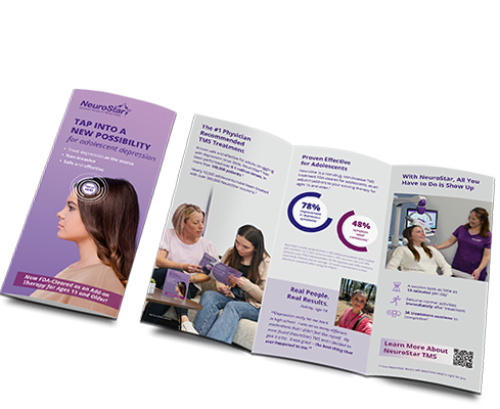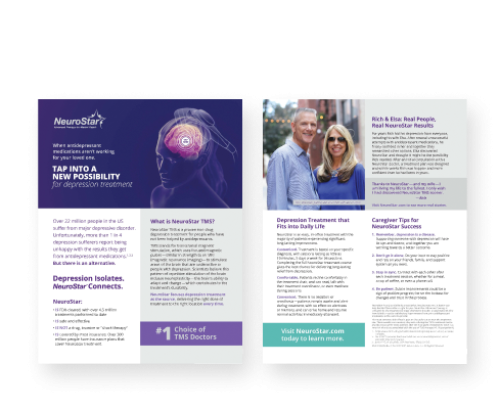
Caring for someone with depression
If a loved one or friend is suffering from depression, you know how serious it can be. You’ve seen how challenging it can be to talk to them about how they’re feeling. And you know how important it is to help them get the treatment they need so they can start living a more fulfilling life. Caring for someone with depression requires empathy and patience, listening and support. Whether you’re helping a friend, your child or a parent, it’s important to be compassionate and understanding — but it’s also important to be persistent about finding the right solution.
Your loved one isn't alone. And neither are you.
How Do I Know if Someone is Depressed?
- Depressed Mood: Severe sadness that may last from several days to several weeks.
- Lack of Interest: No longer finding joy in things they used to love.
- Reduced Energy: Unusual and lasting bouts of fatigue.
- Lack of Concentration: A struggle to focus or make decisions.
- Reduced Self-Esteem: A lack of confidence in themselves and their decisions.
- Ideas of Guilt and Unworthiness: May include talk of being useless or hating themselves.
- Change in Sleep Habits: May include insomnia or oversleeping.
- Change in Eating Habits, Weight Loss/Gain: May include loss of appetite or overeating.
- Ideas of Self-Harm: Talk of hurting oneself.
If you recognize these symptoms in anyone you care for, from children to older adults, it’s important to act.
It may be a difficult topic, but it’s key to offer to help them find treatment that works for them. Don’t try to offer your own ideas on how to “feel better” or “get over it.” Depression is a serious condition and requires professional treatment, no matter someone’s age or personality.
New hope for adolescents and their parents.
If your teen is exhibiting signs of depression, it’s easy to let fear drive decision making. Don’t let the seriousness of the situation and doubts over what to do next turn into hesitation and inaction. Have a conversation with them, listen, encourage them to take the next step toward relief, and include them in the process of seeking treatment.

Treatment for Adult MDD
Although antidepressant medications can be effective for some patients, they do not work for everyone, and can also include unwanted side effects.
For patients who aren’t finding the results they need from antidepressants, non-drug, non-invasive treatments are available, including NeuroStar® Advanced Therapy, which uses short magnetic pulses to stimulate nerve cells in the area of the brain that controls mood.1,14,15
These pulses, administered through a small coil placed on the patient’s head, can have a lasting effect on the brain’s neurotransmitter levels.1,14,15




